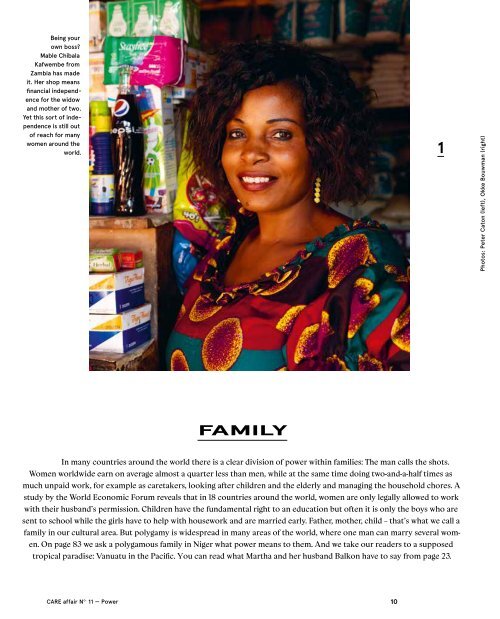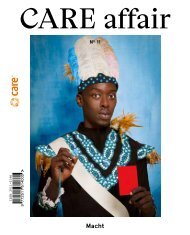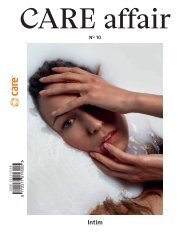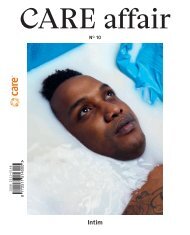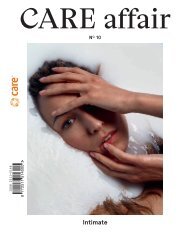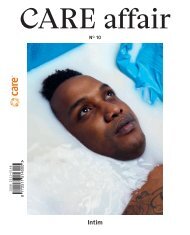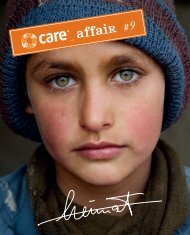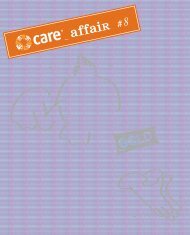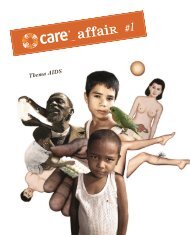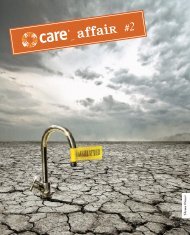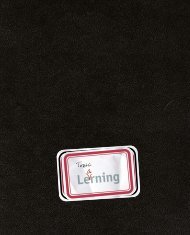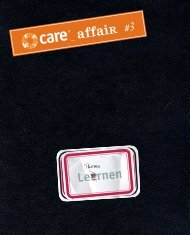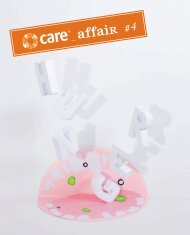CARE Affair #11 - Power
Create successful ePaper yourself
Turn your PDF publications into a flip-book with our unique Google optimized e-Paper software.
Being your<br />
own boss?<br />
Mable Chibala<br />
Kafwembe from<br />
Zambia has made<br />
it. Her shop means<br />
financial independence<br />
for the widow<br />
and mother of two.<br />
Yet this sort of independence<br />
is still out<br />
of reach for many<br />
women around the<br />
world.<br />
1<br />
Photos: Peter Caton (left), Okke Bouwman (right)<br />
FAMILY<br />
In many countries around the world there is a clear division of power within families: The man calls the shots.<br />
Women worldwide earn on average almost a quarter less than men, while at the same time doing two-and-a-half times as<br />
much unpaid work, for example as caretakers, looking after children and the elderly and managing the household chores. A<br />
study by the World Economic Forum reveals that in 18 countries around the world, women are only legally allowed to work<br />
with their husband’s permission. Children have the fundamental right to an education but often it is only the boys who are<br />
sent to school while the girls have to help with housework and are married early. Father, mother, child – that’s what we call a<br />
family in our cultural area. But polygamy is widespread in many areas of the world, where one man can marry several women.<br />
On page 83 we ask a polygamous family in Niger what power means to them. And we take our readers to a supposed<br />
tropical paradise: Vanuatu in the Pacific. You can read what Martha and her husband Balkon have to say from page 23.<br />
<strong>CARE</strong> affair N o. 11 — <strong>Power</strong><br />
10


